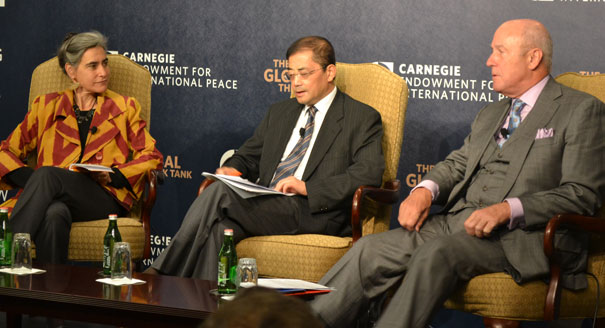Registration
You will receive an email confirming your registration.
China’s President Xi Jinping recently toured the Central Asian republics, offering energy and transportation infrastructure contracts. This continues China’s strong push into a region formerly dominated by Moscow and courted off and on by Washington. Pan Guang, one of China’s foremost experts on the subject, discussed President Xi’s recent visit and China’s positions on AfPak, Syria, Egypt, and Iran. Sarah Chayes offered comments, and Douglas H. Paal moderated.
Pan Guang
Pan Guang is vice chairman and a professor of history and political science in the Shanghai Center for International Studies at the Shanghai Academy of Social Sciences. He was appointed as an ambassador for the High Level Group of the UN Alliance of Civilizations in 2008.
Sarah Chayes
Sarah Chayes is a senior associate in the Democracy and Rule of Law Program and the South Asia Program at the Carnegie Endowment. Formerly special adviser to the chairman of the Joint Chiefs of Staff, she is an expert in South Asia policy, kleptocracy and anticorruption, and civil-military relations.
Douglas H. Paal
Douglas H. Paal is vice president for studies at the Carnegie Endowment for International Peace. He previously served as vice chairman of JPMorgan Chase International and was an unofficial U.S. representative to Taiwan as director of the American Institute in Taiwan.
